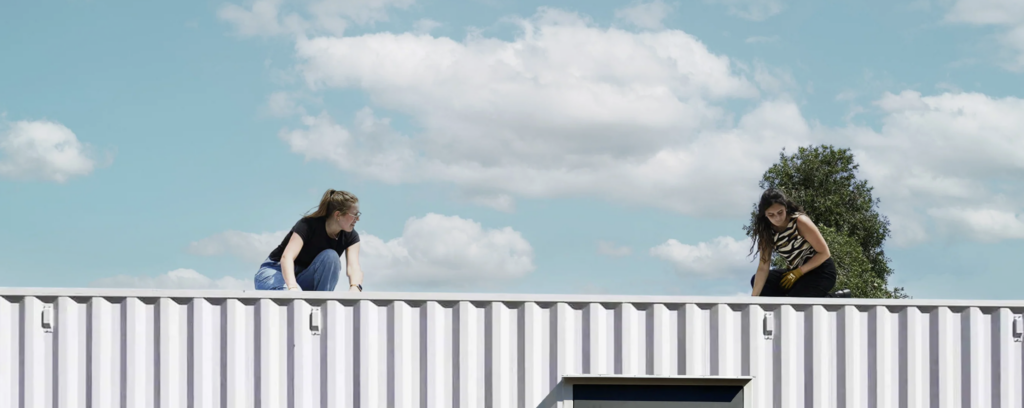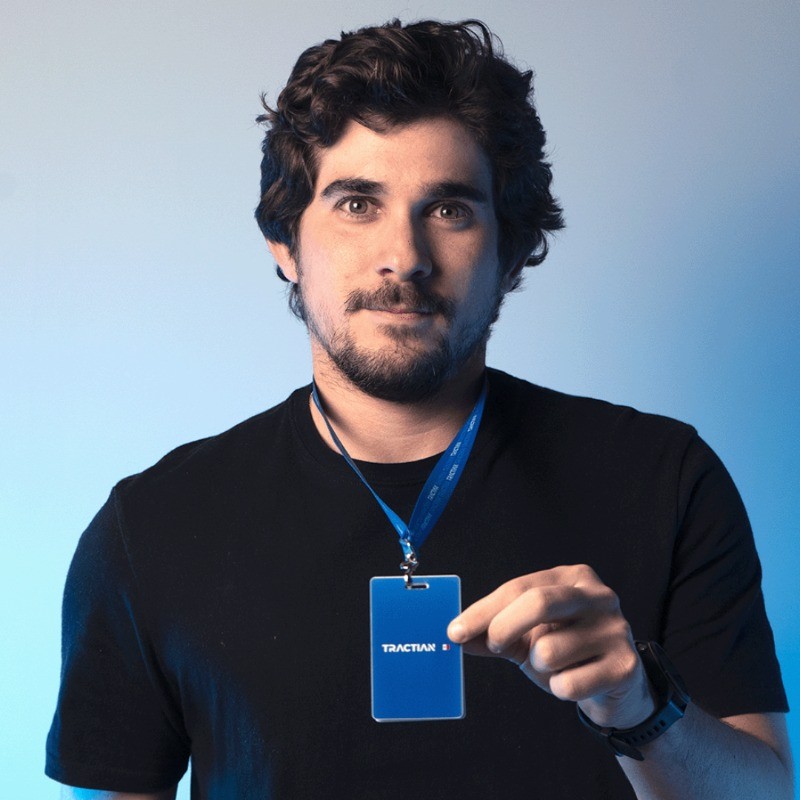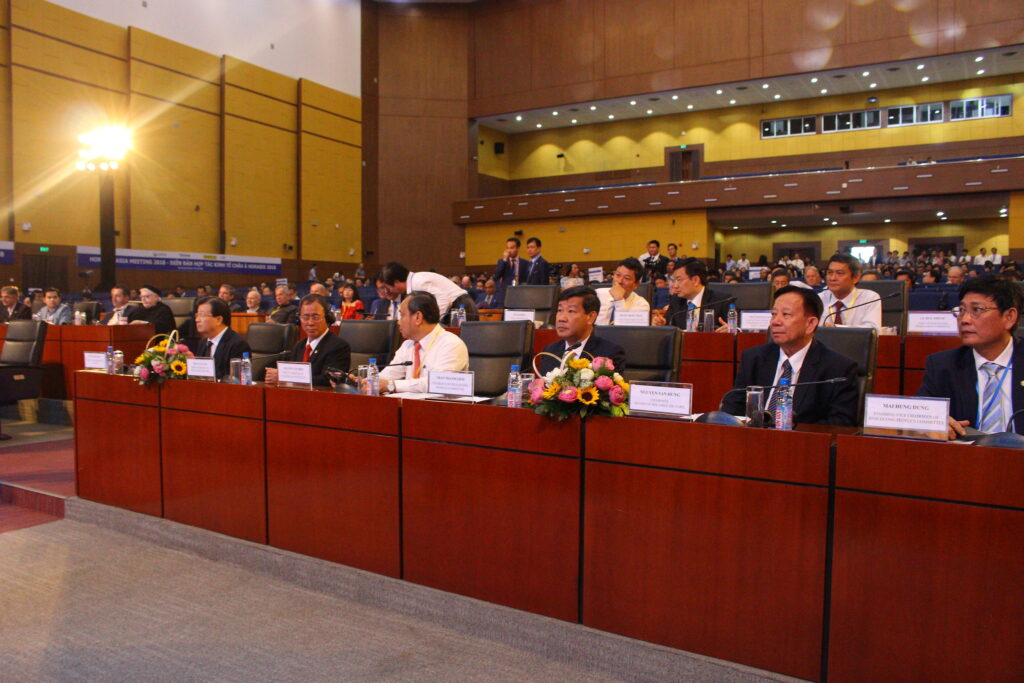Historically, Hispanic communities, in particular, have faced an increased risk from climate-related disasters, with many living and working in regions susceptible to heat waves, flooding, and poor air quality. This includes 55% of the Latinx-American population residing in California, Texas and Florida—three states experiencing the brunt of climate change in recent years. Hurricane Helene was no different, with Hispanic neighbourhoods like Town ‘n’ Country in the Tampa area experiencing record-breaking flooding—reporting levels as high as 7.9 feet in some areas.
With the number of climate-related disasters increasing, it remains a primary issue in the upcoming election, with 65% of Latino voters agreeing that the U.S. needs a president committed to addressing climate change and extreme weather, making it a key priority of their agenda policy.
Hispanic communities play a pivotal role in advocating for climate action, with many providing innovative solutions. From pioneering renewable energy technologies to addressing urban sustainability, we’re spotlighting nine Hispanic leaders making significant advancements toward a greener future.

Diego Saez-Gil – CEO and Co-founder of Pachama
Focus: Carbon offset and reforestation technology
As much as reforestation efforts are underway in some countries, trees are falling faster than being planted. On a global annual scale, we plant 1.83 billion trees, while deforestation results in 15.3 billion trees coming down. To put that in perspective, an estimated one tree is planted for every eight trees that disappears due to human activity.
Diego Saez-Gil and his team at Pachama understand the immense value of restoring what’s been lost. The co-founder created a process using the latest AI technology and satellite imagery to ramp up forest restoration efforts through scientifically backed data. The platform empowers companies and individuals to manage their carbon footprint by viewing their environmental impact in an easy-to-understand format. It allows users to create effective strategies based on accurate and reliable information.
Essentially, businesses can now measure their environmental impacts in a world where regulations require them to do so. With a growing number of governments and companies investing in those who are demonstrating actions that support climate change efforts, Pachama is setting its sights on being the go-to platform that offers transparency in the process so parties can confidently fund the right solutions.
The founders, who were born and raised in South America, saw the impacts of deforestation in their region. Their idea was born out of their love for their surrounding environment and passion for technology. Since then, Pachama has helped fund projects that have restored more than 10K hectares, conservation efforts of more than 2M hectares of globally native forests and is on a mission to achieve more.

Rodrigo Garcia Gonzalez, Co-founder of Notpla
Focus: Eliminating single-use plastic waste with biodegradable solutions
Plastic continues to be one of the largest contributors to environmental degradation, linked to infecting our soil, water, and health. It’s estimated that 50% of the 380 million tons of plastic produced annually is single-use.
Rodrigo Garcia Gonzalez, Co-founder of Notpla, is looking to reimagine packaging for a healthier planet. His award-winning technology is working to replace plastic packing with biodegradable solutions developed from seawood, including containers, cutlery and dry food sachets. It’s an innovative and creative approach to addressing plastic waste that you might encounter in your delivery someday. The company recently secured 25 million in series A+ funding, presenting Nopta with the opportunity to expand into the global markets needing plastic-free solutions.
“We are thrilled to have secured this level of investment in such a competitive environment,” said Gonzalez in a statement.
“This round not only validates our approach but also positions us to capitalise on the growing demand for truly plastic-free packaging solutions in global markets, especially as we develop our material’s possibilities.”

Felipe Chavez, CEO and Co-Founder of Kiwibot
Focus: Reducing fuel consumption in the delivery sector
While technology has enabled us to efficiently order items on demand, innovator Felipe Chavez is turning to technology as a solution to some of the fast food industry’s underlying environmental impacts—increased carbon emissions and fuel consumption.
Felipe Chavez and his team at Kiwibot have created semi-autonomous robots that give us a peek at what deliveries will look like in the future. Their robot fleet has been dispatched in over 30 cities and has completed more than 250,000 zero-free emission deliveries.
His innovative idea was born out of his earlier startup, Lulo, a delivery service for university students in his native country of Colombia. Since launching Kiwibot in 2017, the company has partnered with big names like Grubhub and Amazon. However, understanding the value his bots have in addressing a growing environmental issue, the company is dedicated to providing a sustainable and reliable delivery option that’s affordable and accessible to businesses of all sizes.

Bray Beltrán, Director of Ocean Justice
Focus: Ocean conservation through science-based solutions
A study of 7,800 marine species estimates that ocean life could face total collapse by 2048. The cause is linked to overfishing for human consumption, alongside pollution and climate change as major contributors.
Bray Beltrán, Director of Ocean Justice, is a problem solver actively using his Environmental Life Science education and knowledge to promote biological conservation. For Beltrán, science plays an important role in guiding conservation efforts. From rounding up volunteers for coastal cleanups to actively advocating evidence-based solutions, Beltrán and the team at Ocean Conservancy are focused on continuously promoting actions that conserve the ocean’s ecosystems.
The Colombian-born ecologist is vocal about how his upbringing influenced his career path. He shares that he grew up learning that the fishing community in his native Santa Marta saw a drastic shift in marine life, resulting in fewer resources. He knew that the solutions lay in understanding the intersection between nature, science, and community.

Dr. Humberto Torreblanca, Senior Computational Engineer, Type One Energy
Focus: Creating clean energy source technology.
Fossil fuels account for 75 percent of global greenhouse gas emissions and 80 percent of global energy production. As we shift away from fossil fuels and chase green energy solutions, we turn to forward-thinking problem solvers to point the way.
Dr. Humberto Torreblanca is a Senior Computational Engineer and Research Scientist at Type One Energy, who is mission-driven to provide sustainable, affordable fusion power to the world over the coming decade. through stellarator technology. Torreblanca is a leading expert in fusion energy research, a clean energy source known to produce no harmful emissions that contribute to global warming. The game-changing technology offering limitless clean energy has captured the attention of innovators, including Bill Gates.
Beyond his work for Type One Energy, Humberto is a passionate advocate for STEM education and a community leader. He has created and participated in numerous initiatives worldwide that involve mentoring and inspiring students to achieve their dreams.

Yessenia Funes, editor-at-large for Atmost
Focus: Environmental and climate change education through journalism
Journalism also plays a crucial role in our fight against climate change. Educational resources that provide a voice to the communities directly impacted highlight why we need to react sooner than later. Journalists like Yessenia Funes are active voices dedicated to empowering the world with knowledge and facts about the impacts faced in every corner.
Funes has been reporting on climate change stories for the last decade. The words she shares stem directly from experiencing the environments and collecting the stories of the groups impacted, including immigrants and first responders. Articles that inspire change and connect her audience with the community voices she amplifies. Funes is a dedicated journalist who stays up to date with the latest scientific studies that draw a picture of the present impacts of climate change and what our future could look like as a result of inaction.

Valeria del Rey, Founder of La Gotta
Focus: Eco-friendly made fashion
Fast fashion has a substantial environmental impact that many consumers remain blind to. Rapidly designed, produced, and distributed cheaply made garments contribute to around 10% of global carbon emissions. The environments in which the clothing is made also expose the labour force to hazardous materials that increase the risk of long-term health effects.
Valeria del Rey is a swimwear designer who offers affordable items made from recycled plastics and non-toxic dyes. After working in some of the world’s most fashionable cities under big-name designers, del Rey returned to Puerto Rico to launch La Gotta in 2020. Her designs are inspired by her love for the sea, nature, and island culture. She offers sustainable pieces made from natural fibres alongside CBD wellness skin products that won’t break the bank.

Eduardo Rivera, Owner of Sin Frontera Farm
Focus: Sustainable farming and cultural food practices
One of the most important relationships we have with the environment is the food on our plates, which is also an extension of our culture. Rapid and massive production degrades our resources by damaging the elements we need to produce the food we eat—soil, water, air, and climate. That’s why eco-friendly agriculture plays a crucial role in sustaining our needs for the long haul.
Eduardo Rivera is a dedicated farmer and sustainable agriculture advocate who has been a strong voice in supporting his Latinx community. As the owner and operator of Sin Frontera Farm, Rivera is dedicated to amplifying access to Latinx cultural food by growing items like tomatillos and epazote. His work contributes significantly to promoting sustainability in the food industry while ensuring that the Hispanic community has access to healthy, culturally relevant foods and the skills young farmers need to make a healthy living in the farming sector.

Marrisa Cuevas Flores, CEO and Founder of microTERRA
Focus: Addressing water consumption in agriculture
Water is arguably our most precious resource. However, its overconsumption leads to water scarcity, and agriculture is one of its biggest culprits. An estimated 70% of the world’s freshwater is used in agriculture. But what if the water can be recycled?
Marrisa Cuevas Flores and her Mexican-bio tech company, microTERRA, are rethinking how water and food are traditionally produced with the help of a tiny aquatic plant called Lemna. The company cultivates this plant as a fertilizer that cleans the water used as it grows within the existing infrastructure of fish farms, allowing it to be reused. The added benefit is that the Lemna plant is a valuable protein source that can be used in the food industry, including producing a natural plant-based sweetener called Flora.
Flores is empowering Mexican farmers with a simple plant-based solution that has far-reaching benefits. It is essentially revolutionizing aquatic farm production in a low-cost, sustainable way.

Disclosure: This article mentions clients of an Espacio portfolio company.









